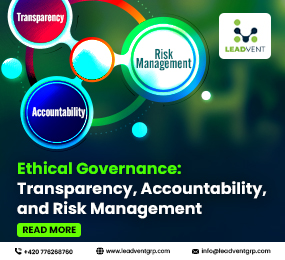ESG and Climate Africa: A Call for Responsibility, Resilience, and Reform
Africa’s journey toward sustainable development is at a pivotal moment. As the continent navigates the twin pressures of economic growth and climate vulnerability, the role of Environmental, Social, and Governance (ESG) frameworks is becoming increasingly vital. ESG is no longer a corporate buzzword it’s emerging as a practical guide for building long-term resilience, responsible investment, and ethical leadership across the region.
What makes Africa’s climate story unique is its contradiction: although it contributes the least to global greenhouse gas emissions, it faces some of the most severe consequences of climate change. Droughts, flooding, desertification, and food insecurity continue to threaten lives and livelihoods. In response, governments, businesses, and communities are beginning to embrace ESG principles not just as policy, but as a foundation for survival and sustainable progress.
Strengthening Environmental Accountability
Africa’s environmental priorities go beyond decarbonization. Safeguarding biodiversity, protecting forests, and ensuring water access are central to the continent’s environmental agenda. Renewable energy is also playing a growing role. Countries such as Kenya, Morocco, and South Africa are investing in solar, wind, and geothermal power to meet future energy demands without increasing their carbon footprint.
Companies operating across the continent are being pushed by both regulators and consumers to report their environmental impact, minimize waste, and make more sustainable choices. Green supply chains, sustainable agriculture, and conservation-focused initiatives are beginning to take root.
Governance and Social Responsibility
Governance remains a critical part of Africa’s ESG landscape. Transparent institutions, regulatory reform, and stakeholder inclusion are essential to building investor confidence and ensuring that ESG goals are not just promises on paper.
Social impact is equally important. Empowering communities, promoting inclusive development, and investing in education and healthcare all fall within the broader ESG mandate. More businesses are recognizing that long-term profitability is tied directly to their ability to create shared value for society.
Partnerships and Progress
No single country or company can address these challenges alone. Regional collaboration, public-private partnerships, and knowledge sharing are proving essential to scale ESG and climate strategies across borders. At the same time,
African voices are gaining prominence in global climate forums calling for climate finance, technology access, and equitable climate solutions that reflect local realities.
Learn more on our website: https://www.leadventgrp.com/event/esg-and-climate-africa-summit/register
For more information and group participation, contact us: [email protected]
Leadvent Group - Industry Leading Events for Business Leaders!
www.leadventgrp.com | [email protected]
















